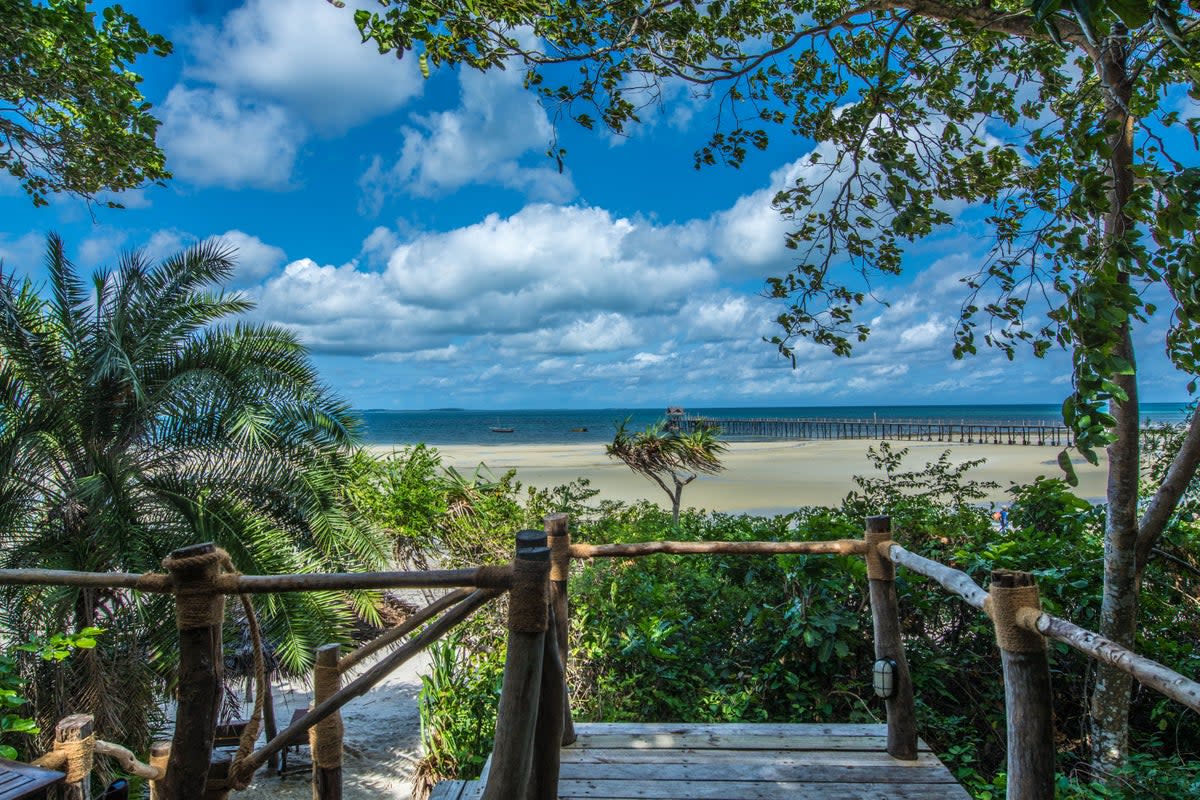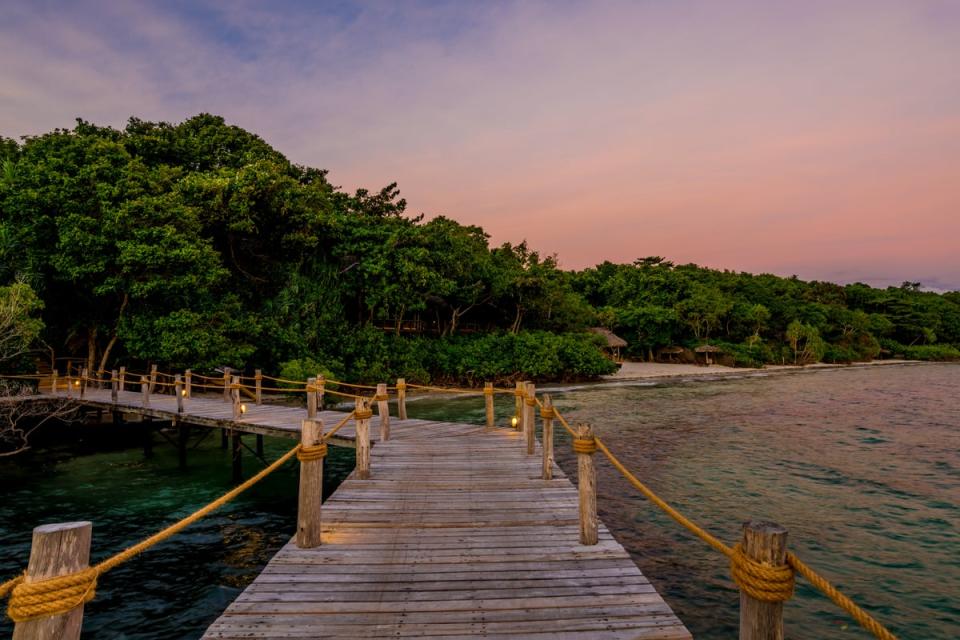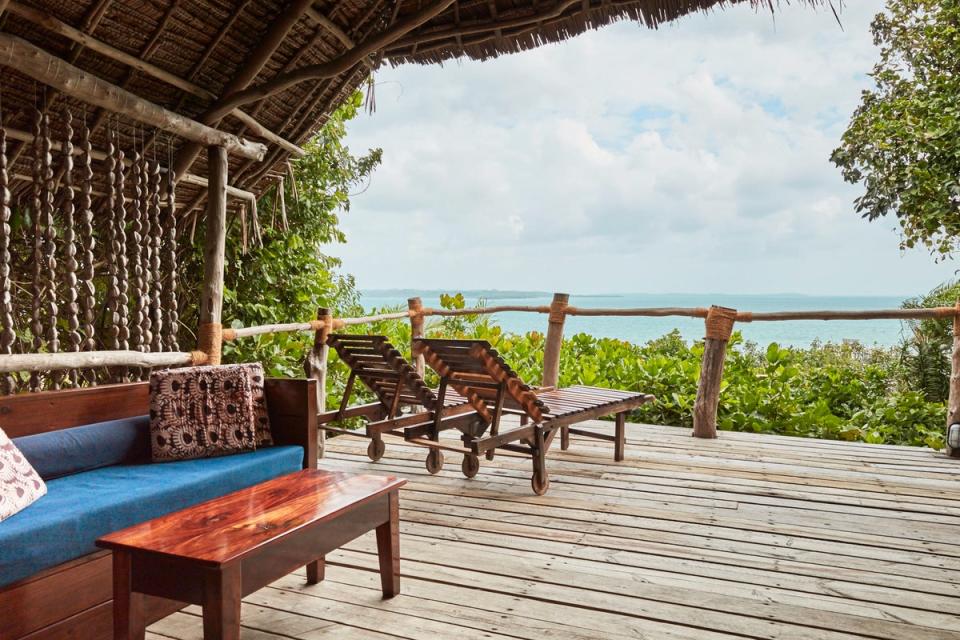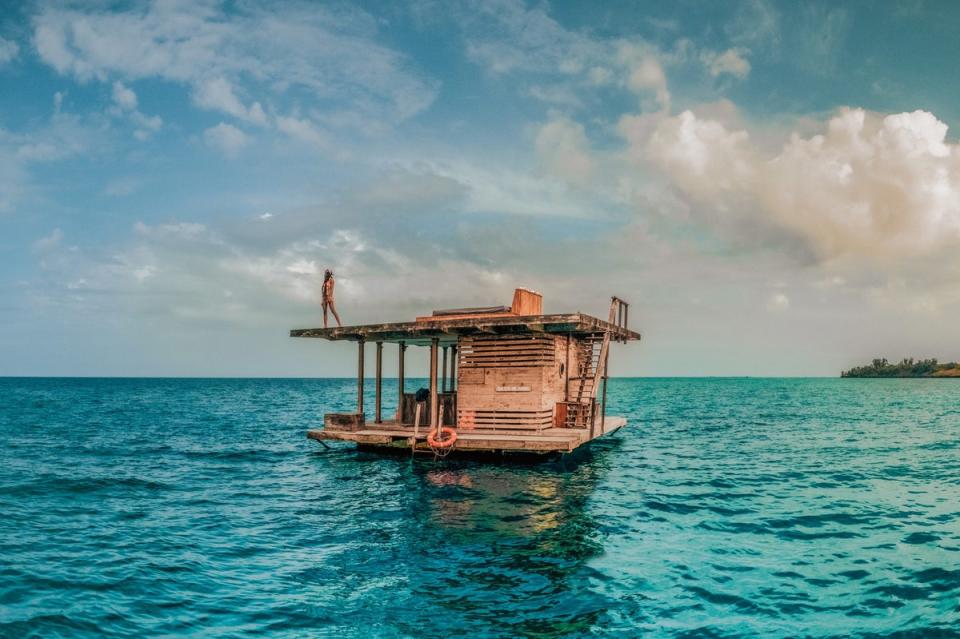Pemba: the secret island the It-crowd don’t want you to know about

For a moment, lovely Lamu was the place to be. Sienna Miller, Mick Jagger, Princess Beatrice, Madonna, Kate Moss and Charlotte Tilbury: if one of London’s It-crowd was getting away from it all, it was to this hush-hush Kenyan hot spot they would go. But, thanks to Instagram, it appears (quite abruptly) to have had its day. Thank goodness for Pemba then.
‘Zanzibar 50 years ago’ is how it’s referred to enthusiastically by those in the know. Zanzibar, with its bulky resorts elbowing one another across the coastline and accompanying tourism circus has long since passed the threshold, while other slices of African idyll have suffered a similar fate at the hand of global hotel chains.
But in green, hilly Pemba, cast adrift from Tanzania and part of the Zanzibar ‘Spice Island’ archipelago (just north of sister island, Unguja), days remain governed by farming and fishing rhythms, the tide and sunsets. Translated from Arabic as ‘Green Island,’ Pemba’s lush, gently undulating fields are scattered with island treasure (crops, vegetables, fruit and spice trees), mangroves and lagoons line its eye-wateringly pretty coast, and offshore coral reefs with steep ocean drop-offs serve up some of Africa’s most thrilling dives.
In the dense tangle of green, vervet monkeys and Pemba flying foxes navigate the trees and below them, the Pemba blue duikers (a relative of the antelope) edges into the sun-dappled forest floor to graze and listen. But it’s the hot breeze, permanently infused with the smell of drying cloves and salt, that imprints itself indelibly in the memories of those in-the-know who’ve discovered the charms of Pemba. That and otherworldly deserted beaches where nothing but the occasional wooden pirogue interrupts an endless turquoise horizon.

There is a growing scene here amid the ancient forests and unspoilt, sleepy coves but still a refreshing lack of flashy Hamptons or Mustique-style houses lining the beaches. Described by one traveller as “a recluse, with very little booze outside the hotels and the most extraordinary beaches I’ve ever been to”, it’s the style set’s best-kept secret. Pemba only offers a handful of hotels, with those in the know hoping it stays that way.
These hotels have artfully woven themselves into the dense vegetation backing the beaches and combing the fertile hills in an effort to preserve the island’s raw beauty. It’s in their interests to ensure Pemba is limited to a certain tribe of traveller — those looking for an authentic, castaway thrill as opposed to the manicured, bulky invader with stilted suites reminiscent of a Manhattan flat. And it’s this exact delicate balancing act that has drawn a raft of celebrities to the island, some for months on end, to stowaway and recalibrate in this off-grid paradise under a cathedral star-studded sky.
Fundu Lagoon is typically whispered within the Pemba set at West London dinner parties with the in-crowd choosing it as the perfect remote party location. ‘My friend just couldn’t believe how beautiful it was, and invited a group of 30 of us back there for his birthday,’ one of them tells me. The small, secluded and immensely private hotel where rooms start at £414 a night, is only accessible by boat and quietly occupies a mangrove-fringed beach on Pemba’s south western shores. Amid a slew of rather basic guest-house style lodges sprinkling the island, it stands out for its blend of splendidly scruffy Robinson Crusoe aesthetic and top-drawer service and just-caught fish menus along with its fusion spa.

Owners, fashion designer Ellis Flyte and Brian Hensen of Jim Henson and the Muppets pedigree, have toed the island’s traditional, unpretentious line with safari-style Makuti thatched suites peering out to sea and adorned with locally crafted materials and dark wooden furniture. Sunsets here are ravishing — moving through shades of yolk, burnt orange and scarlet — and the morning sunlight spills into the porous restaurant, along with a warm, salty Indian Ocean breeze. Along with the gently clipped castaway appeal, Fundu Lagoon devotees wax lyrical about its safari-style dives. The Pemba Marine Reserve’s untouched (and fiercely protected) corals and kaleidoscopic array of exotic fish lie just across from the hotel, in uncrowded waters and with expert guides leading wide-eyed divers. The dives around Misali island are considered some of the best in East Africa. Above water, you’ll find the capital’s magazine editors swapping the front row for sunset dhow cruises which glide past schools of dolphins and sea turtles, and whale-watching adventures can even be organised during the summer months. Such trips are considered the far-flung island sequence to the bells and whistles Tanzanian bush safari, among a discerning, deep-pocketed set.
Away from Fundu Lagoon, the A-list can also be found at The Manta Resort, where its underwater glass suite (£1,500 per night with a minimum three-night stay) offers a thrilling marine wake-up call and guests return from deep sea fishing expeditions with tall wahoo, dorado and yellowfin tuna tales (the island may be ringfenced by coral reefs, but these abruptly drop to depths of more than 2,000 metres).

But a great part of Pemba’s appeal is that its islet hopping and underwater theatre remains largely democratic. Yes, deep sea fishing adventures rarely come cheap, but those dropping their canvas bags at less barefoot luxury Lala Lodge or Pemba Eco Lodge can join the rich and famous and marvel at turtles, lionfish and red sea sweetlips. Shards of brilliant African light slice through the bath-warm waters, animating the coral-strewn seabed for superb visibility and delivering snorkelling novices a level of marine spectacle typically reserved for divers. Unlike many Maldivian diving or snorkelling sites, there is a reluctance here to share the co-ordinates — a group of snorkellers heading to Scorpions Secret or patches of the Shimba Hills (a serene, underwater valley) may find they have the reefs, the triggerfish, octopus, and giant frogfish to themselves. The Njao Gap between Pemba and the Njao islands, and the Fundu Gap both host stellar snorkelling spots, the latter home to eagle rays. It is Pemba Island’s seclusion from the mainland that has protected its tropical waters and reefs, offering divers and snorkellers a privileged glimpse of marine life pre-humans, and on land, with land-before-time Ngezi forest reserve and Vumawimbi beach — an endless, empty strip of powder-white sand.
Unlike many islands, Pemba offers a layered, complex history, typically explored by scooter along dusty winding tracks. Among its thick forests and lush, undulating countryside lie various tombs and mosque ruins — vestiges of the 17th-century Arab occupation and Sultan rule. Ras Mkumbuu ruins, located in the Chake Chake district close to the village of Ndagoni, feature an 11th-century mosque and a series of grandiose graves. Those who know the island well advise a visit to Pemba Museum first, the 18th-century Omani fort (allegedly built on the remains of a 16th-century Portuguese garrison), for a condensed account of the island’s history.

Woven into the island’s cultural tapestry, along with an abhorrent slave trade history and spice trade, are certain traditions. Both Pemba and Zanzibar have long been centres for so-called voodoo rituals and continue to draw in those seeking alternative healing for physical or mental affliction, or a transcendent form of enlightenment that Western culture is unable to offer. On visiting the island in the 1930s, British writer Evelyn Waugh affirmed the island’s role as the centre of this practice, detailing in his travel book Remote People (1931) that Pemba drew in budding “witch doctors” from as far as the Great Lakes of central Africa and even Haiti to finesse their skills. Today, many islanders still seek the advice of both medics and more alternative doctors when they are unwell or faced with a threat, though tourists are rarely offered a window into this world.
These traditions, along with the signature waft of cloves, Sultan lore, ethereal pools of light dotting ancient forests and boulder-strewn beaches lends Pemba its air of mystery and enchantment. A land of mangrove swamps, deserted beaches and magic.
Five more under-the-radar island escapes
Seychelles — Alphonse Atolls
A Microsoft Office PC screensaver from the Nineties is the most unimaginative image of the Seychelles — and perhaps the most accurate. It shows flawless white beaches tipping gently into transparent water. Alphonse Island reels in deep sea fishers keen to plaster their Instagram accounts with exotic, meaty catches. The island’s namesake hotel, with its thatched villas, are set along the beach.
Bazaruto Archipelago
Part of Bazurato National Park, this group of six islands off the coast of southern Mozambique are ring-fenced by coral reefs for superlative diving. Marine life includes dugongs and whale sharks, while on shore, wetlands and ancient forests teem with exotic birds and wildlife. Intrepid ambitions are paired with Egyptian cotton and fine wine at castaway chic resort, andBeyond Benguerra Island.
Moorea, French Polynesia
Tahiti’s fairer little sister thrums with tropical life while its surrounding reefs lure serious divers into the water. Those hankering after thatched, stilted suites and pre-breakfast snorkels beeline for Hilton Moorea Lagoon.
Dominica, Caribbean
Where rainforests tumble into turquoise water, volcanic lakes gurgle and natural hot springs hiss into the warm air. Stay in low-key luxury at Secret Bay, perched on a clifftop with knockout sunset views.
Koh Yao Noi, Thailand
A mere 30-minute motorboat ride from frantic Phuket, Koh Yao Noi offers stays at Six Senses Yao Noi, whose wooden villas twist towards limestone mountains surging dramatically from Phang Nga Bay.

 Yahoo News
Yahoo News 
